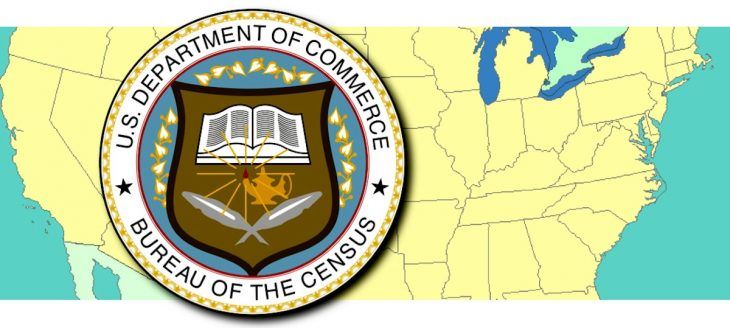Census ‘listers’ begin neighborhood canvassing for 2020 population count
by August 14, 2019 12:10 pm 826 views

Now that the U.S. Supreme Court has ended the Trump administration’s plan to ask all U.S. households about their citizenship, the U.S. Commerce Department’s Census Bureau this week moved forward with canvassing efforts as the first major field operation of the 10-year population count that begins in March 2020.
In a media briefing on Monday, the Census Bureau said it begin canvassing in communities to improve and refine the Census Bureau’s address list of households nationwide, which is necessary to deliver online and paper invitations to respond to the census. The address list plays a vital role in ensuring a complete and accurate count of everyone living in the U.S., officials said.
“The Census Bureau is dedicated to ensuring that we are on track, and ready to accomplish the mission of the 2020 Census,” said Census Bureau Director Steven Dillingham. “We have made many improvements and innovations over the past decade, including better technologies for canvassing neighborhoods and developing complete and updated address listings and maps.”
In preparation for the first contact with U.S. households, the Census Bureau has created a new software called the Block Assessment, Research and Classification Application (BARCA), which compares satellite images of the U.S. over time. Bureau officials said the software allows employees to spot new housing developments, changes in existing homes and other housing units that did not previously exist.
Census Bureau reviewers will also use BARCA to compare the number of housing units in current imagery with the number of addresses on file for each block, limiting the number of canvassers needed to conduct on-the-ground verification, Agency Geography Division Chief Deirdre Bishop said during the briefing.
“We were able to verify 65% of addresses using satellite imagery — a massive accomplishment for us,” said Bishop. “In 2010 we had to hire 150,000 people to verify 100% of the addresses in the field, this decade we will only have to hire about 40,000 employees around the nation to verify the remaining 35% of addresses.”
Census Bureau employees, known as “listers,” have already started walking through neighborhoods checking addresses not verified using BARCA software. In-field address canvassing will continue through mid-October, officials said. To help identify address listers, employees will have badges and briefcases indicating their affiliation with the Census Bureau.
Once at a home address, listers will knock on doors and ask a few simple questions to verify the address and any additional living quarters on the property for inclusion in the census. Employees will introduce themselves as a Census Bureau employee, show their official government ID badge, and explain the purpose of the visit. Homeowners may also ask them for a picture ID from another source to confirm their identity.
Additionally, the Census Bureau has also developed the In-Field Address Canvassing (IFAC) viewer to allow listers to explore the workload areas. Users can see the percentage of households and housing units in a local area by clicking on a County, Census Tract, or Congressional District. Agency officials said this is one of several activities the Census Bureau conducts for an accurate and complete count.
The Census Bureau, which is housed with the U.S. Department of Commerce, will also partner with the U.S. Postal Service and tribal, state and local officials to update the address list, agency officials said.
“Ultimately, the success of the census depends on everyone’s participation,” said Marilyn Sanders, Chicago regional director. “And it’s important to remember, when you respond to the census you shape your future and the future of your community.”
In Arkansas, a coalition called Arkansas Counts was launched in June to make sure the Census is accurate across the state. Arkansas Counts is led by Arkansas Impact Philanthropy, Arkansas Advocates for Children and Families, Arkansas United, and Arkansas Public Policy Panel, with support from the national Census Equity Fund.
The Complete Count Committee (CCC) is composed of 21 community leaders committed to increasing awareness and motivating Arkansas residents to be counted in the upcoming census.
